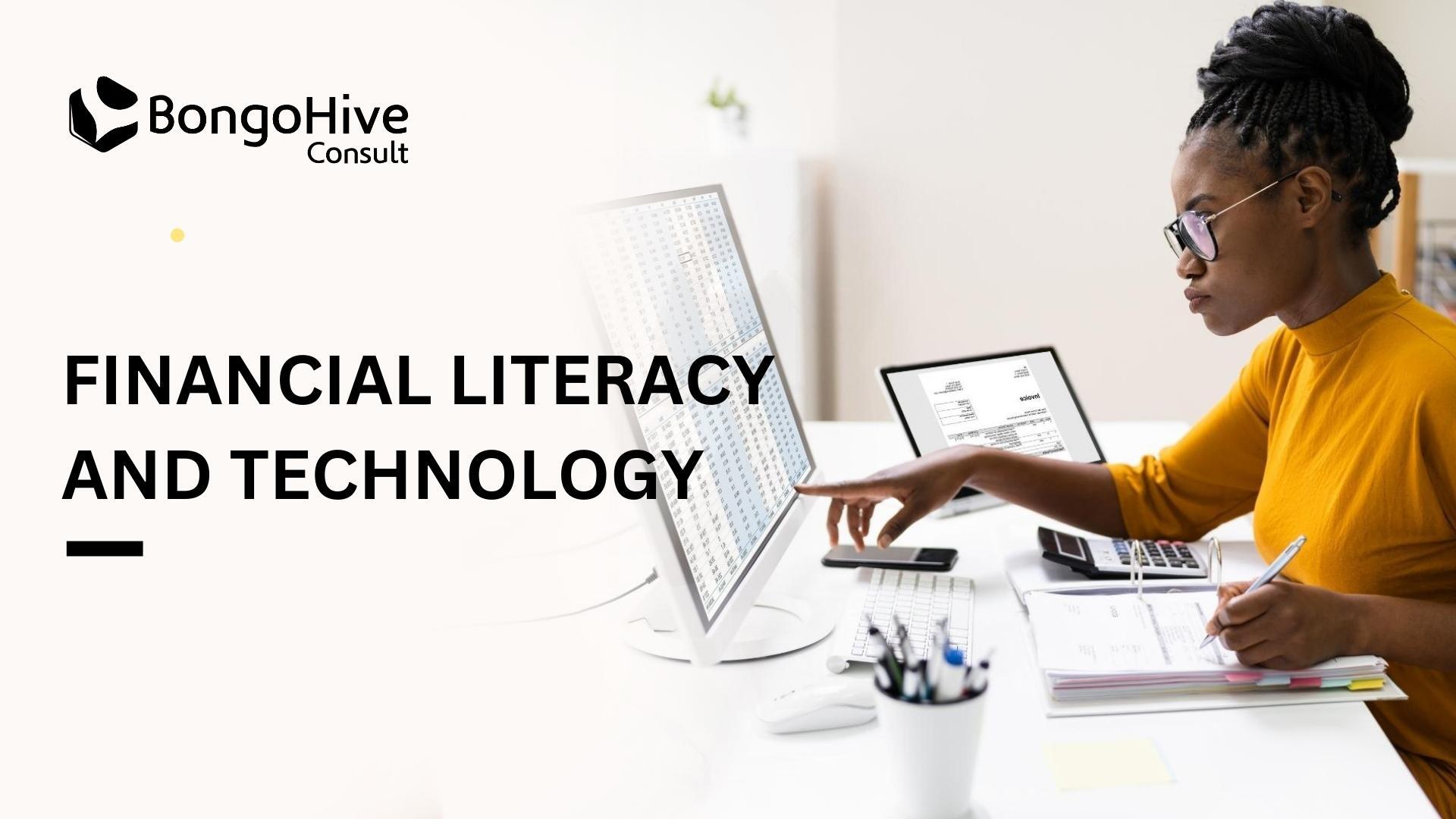
Financial literacy is the ability to understand and effectively manage one’s financial resources. It is an essential skill that can enable one to become financially independent and make wise financial decisions.
As the world continues to advance through technology, we recognise that technology has the ability to significantly contribute to raising financial literacy and giving people the power to make wiser financial decisions.
Zambia’s financial inclusion is still rising steadily, Finscope reveals that Zambia stood at 69.4% in 2020 as compared to 59.3% in 2015.
However, women and young people continue to face greater disadvantages than men as FinScope 2020 findings further reveal that males’ financial inclusion stands at 71.2% compared to females’ at 67.9%.
Low financial capabilities, including digital and financial literacy, have been cited as reasons for lower levels of financial inclusion among women and youth.
In addition, illiteracy remains a barrier to enhanced financial inclusion in Zambia. FinScope 2020, highlights that financial literacy is at 23.6% and is skewed towards the urban population at 31.9%, while rural households stand at only 16.2%.
The need for education and awareness campaigns to raise financial literacy levels in the nation is made clear by these statistics. The financial environment in Zambia, like many other developing nations, is beset by a number of difficulties, including limited access to financial services, low levels of financial literacy, and reliance on unofficial financial practices. Zambia, like many other African nations, has undergone a significant transformation, with technology at the forefront of this change.
Financial literacy is one area where technology has made a big difference, enabling people to make wiser financial decisions.
Therefore, this article will go over ways in which technology has benefited financial literacy in Zambia and how we can use it to fuel future development.
Mobile Money Transactions
The use of mobile money has drastically changed how money is exchanged. People are now able to send and receive money, pay bills, and even save money in a quick, secure, and practical manner.
Further, mobile money users can use the service to access financial services even in far-off places where conventional banks may not be present. Mobile money services such as Airtel Money and MTN Mobile Money have become popular in Zambia, with millions of people using them to transact every day.
The ability to save money on mobile wallets has been made available by mobile money providers. In addition, banks and mobile money service providers have joined forces to offer access to more formal financial services like loans and insurance.
Online Banking
Online banking has made banking more convenient as account owners are able to access their bank accounts and peform transactions from their computers or mobile devices. This convenience has encouraged more people to use banking services and has also enabled people to track their spending and in return have incressed control over their expenditure leading to better financial management.
Online banking has also made it easier for businesses to transact. With online banking, businesses can make payments to their suppliers and receive payments from their customers without having to visit a bank. This convenience has reduced the cost and time involved in transactions for businesses.
E-commerce
Financial literacy has also enhanced E-commerce in Zambia. Ben Lutkevich of Tech Target describes E-commerce (electronic commerce) as, ‘the buying and selling of goods and services, or the transmitting of funds or data, over an electronic network, primarily the internet.’ He expalins that these business transactions occur either as business-to-business (B2B), business-to-consumer (B2C), consumer-to-consumer or consumer-to-business.
With E-commerce, customers can shop online by paying for goods and services via an online network. E-commerce has made it easier for people to access goods and services, especially in areas where traditional retail outlets are not available. It has also reduced the cost of transactions, making it more affordable for people to buy and sell goods and services.
The growth of entrepreneurship has also been enhanced through E- commerce because people can start businesses online by selling products and services to customers across the country and beyond. Businesses owners have the option to expand their customer base beyond their local markets to an even larger market online.
Leveraging Technology for Continued Growth
To leverage technology for continued growth in the financial sector, there is a need to continually invest in digital infrastructure. This includes improving internet connectivity and access to electricity. There is also a need to develop policies and regulations that promote innovation and entrepreneurship as this will encourage the development of new financial products and services that will benefit consumers.
Online Financial Education
The internet has proved to be a powerful tool for disseminating information, and hence it can be leveraged to improve financial literacy in Zambia.
Today, there are many online resources available that offer financial education. For example, financial institutions, government agencies, and NGOs can collaborate to develop online financial education resources that are tailored to the needs of Zambians. These resources could be in the form of videos, webinars, or online courses.
One advantage of online financial education is that it can be accessed from anywhere, at any time. This means people can learn at their own pace and on their own schedule. Additionally, online financial education can be made available in different languages to ensure that it is accessible to a wider audience.
Digital Financial Services
Financial services that are delivered digitally, such as through the internet, mobile devices, or other electronic devices, are referred to as digital financial services. These services include mobile money, e-wallets, and online payment platforms. By making financial services more convenient and accessible, digital financial services can raise financial literacy.
Financial education can be promoted through the use of digital financial services. Financial institutions, for instance, can train their clients in financial literacy using digital platforms such as websites and even social media.
Additionally, financial institutions are better placed to also address issues of cyber security and online transactions, by educating their users on some of the dangers to look out for as they transact online.
Financial Technology (Fintech)
Fintech refers to the use of technology to provide financial services. FinTech has the potential to transform the financial sector in Zambia by making financial services more accessible and affordable to users across different socio-economic tiers.
Fintech companies are also pivotal in accelerating financial literacy as they are in a position to develop innovative solutions that address the financial literacy needs of underserved populations in the country.
Social Media
Social media has become a powerful tool for disseminating information, and it can be leveraged to improve financial literacy too. Social media platforms such as Facebook, Twitter, Instagram and LinkedIn can be leveraged to provide infographics, videos, and tips, or even explore innovative ways to speak to the younger generation on financial literacy.
Overall, the use of technology to increase financial literacy can not be over emphasised as technology has created the opportunity to reach masses across the globe with information within seconds.
Therefore, as technology continues to have a significant impact on financial literacy in both urban and rural areas, more people are empowered to make better financial decisions. To leverage technology for continued growth, more needs to be done to invest in digital infrastructure and financial education as this will ensure that people have access to the tools and knowledge they need to manage their finances better.
 BongoHive
BongoHive